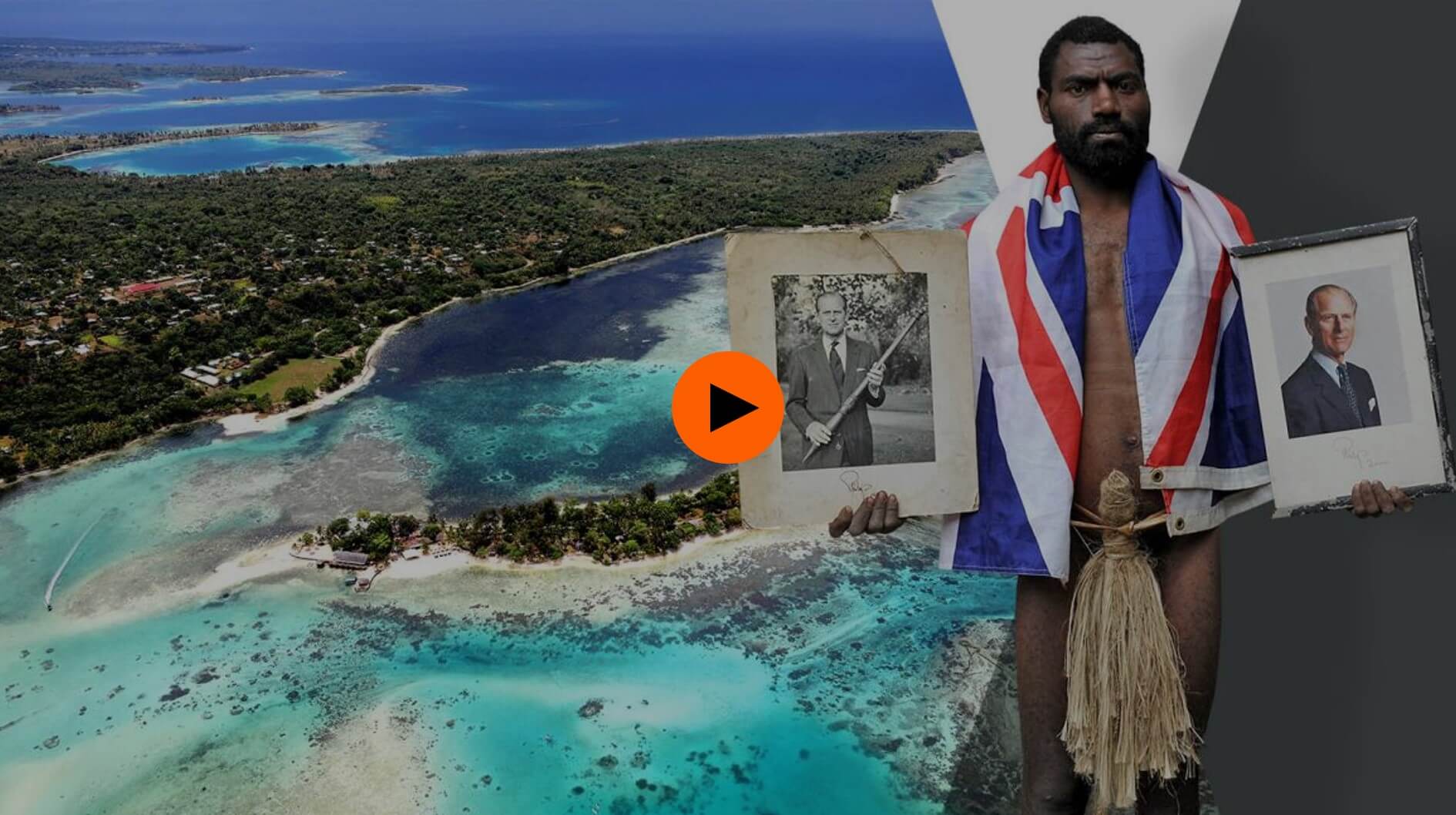
Inside The Remote Island Tribe Where Prince Philip Is Worshipped Like a God
More than 9,000 miles from the coast of the United Kingdom lies the island of Tanna, spanning just 25 miles in length and 12 miles wide.
Despite the remote nature of Pacific nation, villagers on the tiny island in Vanuatu’s south built a truly unique and unlikely relationship with Prince Philip, Duke of Edinburgh.
The Queen has today announced her “deep sorrow” as she confirmed that Prince Philip has died peacefully at Windsor Castle, just two months before his 100th birthday and only weeks after the couple were reunited following his month-long stay in hospital.
The people of the village of Yaohnanen believe the royal to have descended from their spirit ancestors and worship him like a god, possessing framed photos of Philip and praying to him to one day “return to heal the land”.
The ‘Prince Philip Movement’ believes that the Duke was the ‘pale skinned’ son of a mountain god who travelled overseas to marry a powerful woman, and would one day return to their tribe.
The sect is thought to have been established in the 1950s or 1960s, but was greatly strengthened when Prince Philip and the Queen visited Vanuatu on official duties in 1974.
Imanourane tribal chief Jack Malia revealed that Prince Philip had advised villagers never to accept money from visitors, only food to share, and explained that the Duke is held in such high esteem “because ancestors told us part of our custom is in England”.
Six years later, in 1980, followers arranged for a traditional pig-killing club, called a nal-nal, to be sent to Prince Philip in London, who sent a picture holding the item in return and the image is revered among the tribe and considered sacred.
It was reported that islanders believed Philip’s decision to retire in 2017 triggered a tropical cyclone, saying the announcement that he was to step away from royal duties reduced the chances he would visit again, which was reflected in the weather.
They said Prince Philip’s return to the island would have resulted in a change of fortune, as Malia declared at the time: “If he comes, the people will not be poor, there will be no sickness, no debt and the garden will be growing very well.

